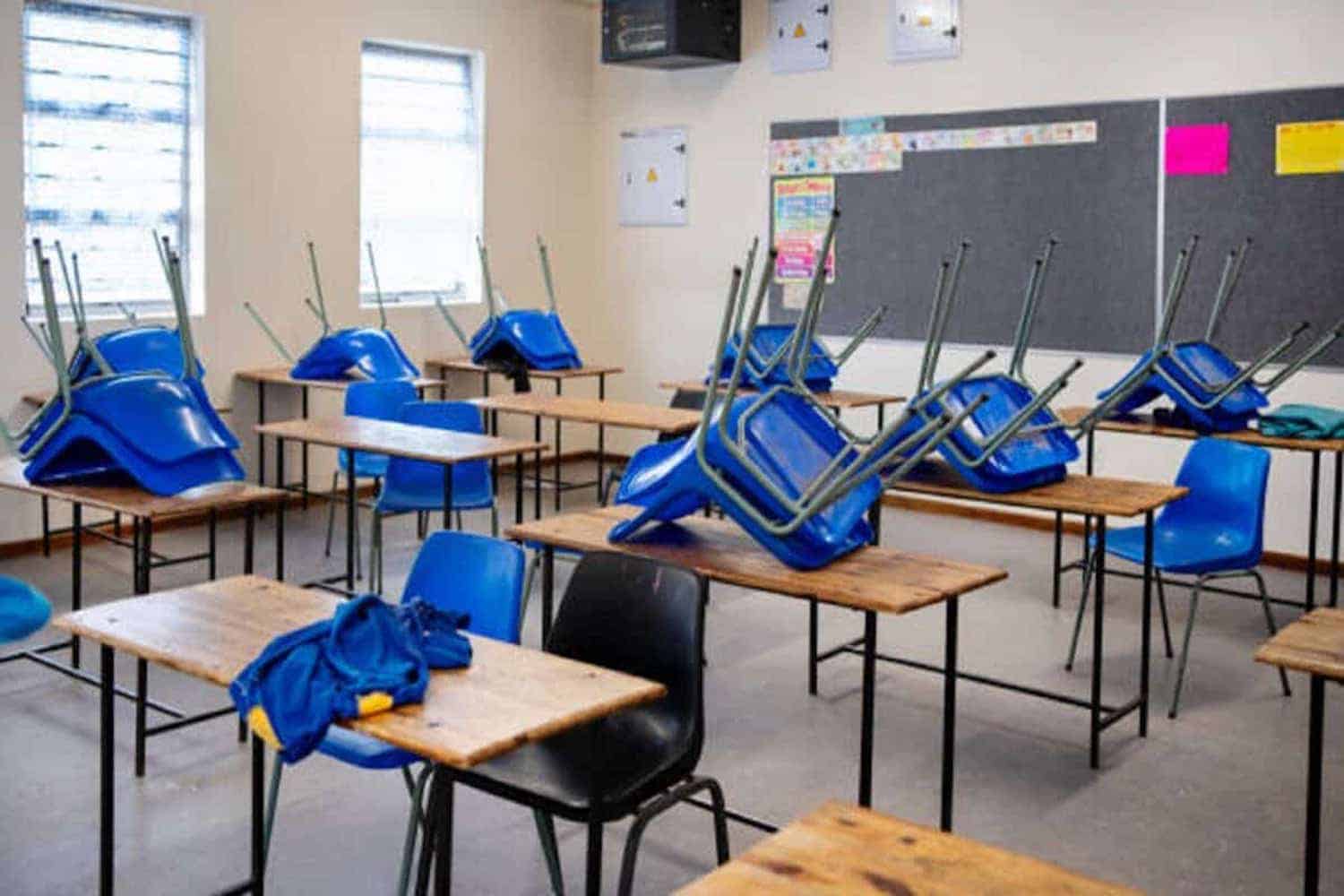EFF MP Reneiloe Mashabela questioned whether these schools were adequately staffed and resourced.

Empty classroom in school with chairs on the table. Picture: iStock
As reports surface of another child being hospitalised after eating snacks from a spaza shop, the national department of basic education has detailed steps it is taking to keep students who are most vulnerable safe.
The Sowetan reported on Wednesday that an eight-year-old boy is “fighting for his life” after allegedly eating snacks from a tuckshop.
At least 22 children died from eating contaminated foods last year, with 890 cases reported between September and November across all provinces. Many of these were in schools, leading to a halt of sales at school tuckshops for a time.
For those with special needs, the risk can be greater, needing government intervention.
When asked about this recently, the department said it was working with provincial health departments to monitor the situation and prevent the spread of food-born illness.
These include the distribution of a safety circular, Standard Operating Procedures, educational materials and health messaging campaigns.
The 2025 Back to School campaign also featured health awareness drives.
“Incorporation of health awareness messages in the ministerial announcement of the 2024 National Senior Certificate Results” and public broadcasts through television, radio and community platforms are part of this strategy, the department said.
Further efforts include the review of tuckshop guidelines and school readiness monitoring.
There are also food safety workshops aimed at equipping schools with critical knowledge.
ALSO READ: Education department launches blitz on independent schools amid Cwecwe rape case
Shortages at special needs schools
EFF MP Reneiloe Mashabela questioned whether these schools were adequately staffed and resourced, highlighting a shortage of assistive devices and learning material
The department does not oversee direct operations at special needs schools, saying the responsibility lies with provincial departments.
“The responsibility for ensuring that all special needs schools are adequately staffed and resourced for the 2025 academic year lies with the respective provincial education departments,” the national department said.
It said it had procured braille and large print resources, but distribution and implementation are provincial mandates.
“These resources were shared with provincial education departments for use by their schools. They have also been made available on the national department’s website,” it noted.
ALSO READ: Gauteng education cuts ties with Nali’Bali after sexual assault incident
Financial mismanagement and corruption
The department also referred concerns over financial mismanagement and corruption at these schools to provincial departments.
“Queries regarding budget sufficiency for the 2025 academic year should be referred to the relevant provincial departments,” it stated.
It said these departments were responsible for implementing financial controls, with the national department merely providing “oversight and guidance”.
NOW READ: Gauteng dept of education failing with just 1.3% of budget going on school repair backlog
Download our app




